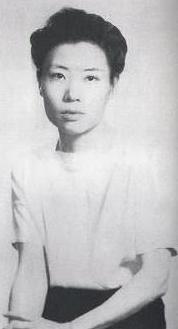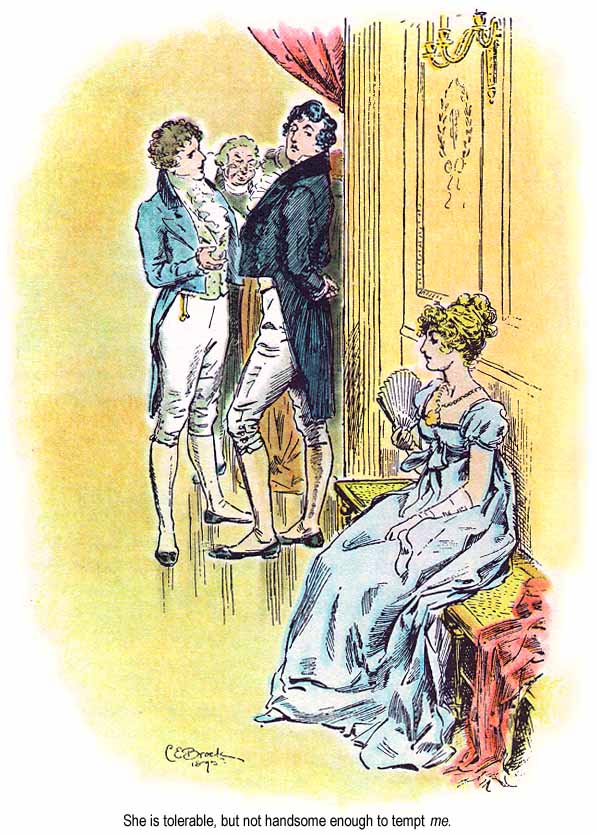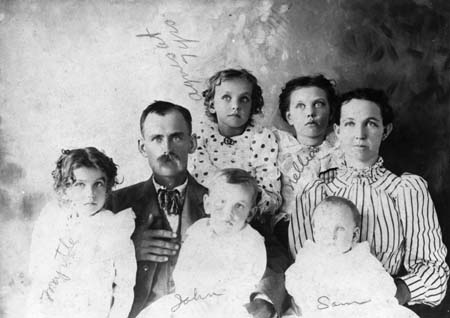|
Yang Gang (journalist)
Yang Gang (; 1905 – 7 October 1957), also known as Yang Bin (), was a Chinese journalist, novelist, and translator. She gained prominence reporting for the influential newspaper ''Ta Kung Pao'' during the Second Sino-Japanese War, and was considered one of the top four female journalists in China. After the Chinese Communist Revolution, she served as Premier Zhou Enlai's secretary and later Deputy Chief Editor of the ''People's Daily''. She committed suicide in October 1957, after being forced to persecute her colleagues during the Anti-Rightist Campaign, although the exact reason for her suicide remains undetermined. Early life and education Yang was born in Pingxiang, Jiangxi province, one of 11 children in a family of Xiantao, Hubei ancestry. Her father was a high-ranking politician who served as governor of Jiangxi and Hubei provinces. Her name at birth was Yang Jizheng (). In 1922 Yang attended Baoling Girls' School in Nanchang, an American missionary school. In 1927 she ... [...More Info...] [...Related Items...] OR: [Wikipedia] [Google] [Baidu] |
Yang (surname)
Yang (; ) is the transcription of a Chinese family name. It is the sixth most common surname in Mainland China. It is the 16th surname on the ''Hundred Family Surnames'' text. The Yang clan was founded by Boqiao, son of Duke Wu of Jin in the Spring and Autumn Period of the Ji (姬) surname, the surname of the royal family during the Zhou dynasty ) who was enfeoffed in the state of Yang. History The German sociologist Wolfram Eberhard calls Yang the "Monkey Clan", citing the totemistic myth recorded in the ''Soushenji'' and ''Fayuan Zhulin'' that the Yangs living in southwestern Shu (modern Sichuan) were descendants of monkeys. The ''Soushenji'' "reported that in the southwest of Shu there were monkey-like animals whose names were ''jiaguo'' (猳國), ''mahua'' (馬化), or '' jueyuan'' (玃猿). These animals abducted women and sent them back when they became pregnant. If the baby were not accepted, the woman would have to die. Therefore these children were raised and they re ... [...More Info...] [...Related Items...] OR: [Wikipedia] [Google] [Baidu] |
Nanchang
Nanchang (, ; ) is the capital of Jiangxi Province, People's Republic of China. Located in the north-central part of the province and in the hinterland of Poyang Lake Plain, it is bounded on the west by the Jiuling Mountains, and on the east by Poyang Lake. Because of its strategic location connecting the prosperous East and South China, it has become a major railway hub in Southern China in recent decades. As the Nanchang Uprising in 1927 is distinctively recognized by the ruling Communist Party as "firing the first gunshot against the evil Nationalists", the current government has therefore named the city since 1949 "the City of Heroes", "the place where the People's Liberation Army was born", and the most widely known "place where the military banner of the People's Liberation Army was first raised". Nanchang is also a major city, appearing among the top 150 cities in the world by scientific research outputs, as tracked by the Nature Index and home to Nanchang Universit ... [...More Info...] [...Related Items...] OR: [Wikipedia] [Google] [Baidu] |
Yong'an
Yong'an () is a county-level city in west-central Fujian province, People's Republic of China. It is located on the Sha River, which is a tributary of the Min River (Fujian), Min River. accessed August 14, 2005 Yong'an is located in the west-central part of the prefecture-level city of Sanming, approximately west of Fuzhou, the provincial capital. The city's population is 319,000 (2003–2004).The natural population growth rate is 5.87%. Yong'an is known for: #Its rich natural resources (hence the saying "gold mountain silver water"). The forest coverage is more than 85%, which is a miracle percentage in southern-east of China. #A relatively strong industrial base. Yong'an is a rising industrial city in Fujian Province and an important energy and raw materials production base. #A relatively complete infrastructure located in the northwest of Fujian Minnan. It is an important transport hub and a distribution center. #A relatively high level of urbanization, actively creating be ... [...More Info...] [...Related Items...] OR: [Wikipedia] [Google] [Baidu] |
Fujian
Fujian (; alternately romanized as Fukien or Hokkien) is a province on the southeastern coast of China. Fujian is bordered by Zhejiang to the north, Jiangxi to the west, Guangdong to the south, and the Taiwan Strait to the east. Its capital is Fuzhou, while its largest city by population is Quanzhou, both located near the coast of the Taiwan Strait in the east of the province. While its population is predominantly of Chinese ethnicity, it is one of the most culturally and linguistically diverse provinces in China. The dialects of the language group Min Chinese were most commonly spoken within the province, including the Fuzhou dialect of northeastern Fujian and various Hokkien dialects of southeastern Fujian. Hakka Chinese is also spoken, by the Hakka people in Fujian. Min dialects, Hakka and Mandarin Chinese are mutually unintelligible. Due to emigration, a sizable amount of the ethnic Chinese populations of Taiwan, Singapore, Malaysia, Indonesia, and the Philippines ... [...More Info...] [...Related Items...] OR: [Wikipedia] [Google] [Baidu] |
Marco Polo Bridge Incident
The Marco Polo Bridge Incident, also known as the Lugou Bridge Incident () or the July 7 Incident (), was a July 1937 battle between China's National Revolutionary Army and the Imperial Japanese Army. Since the Japanese invasion of Manchuria in 1931, there had been many small incidents along the rail line connecting Beijing with the port of Tianjin, but all had subsided. On this occasion, a Japanese soldier was temporarily absent from his unit opposite Wanping, and the Japanese commander demanded the right to search the town for him. When this was refused, other units on both sides were put on alert; with tension rising, the Chinese Army fired on the Japanese Army, which further escalated the situation, even though the missing Japanese soldier had returned to his lines. The Marco Polo Bridge Incident is generally regarded as the start of the Second Sino-Japanese War, and arguably World War II. Name In English, the battle is usually known as the "Marco Polo Bridge Incide ... [...More Info...] [...Related Items...] OR: [Wikipedia] [Google] [Baidu] |
Gu Jiegang
Gu Jiegang (8 May 189325 December 1980) was a Chinese historian best known for his seven-volume work '' Gushi Bian'' (, or ''Debates on Ancient History''). He was a co-founder and the leading force of the Doubting Antiquity School, and was highly influential in the 20th century development of Chinese history. Biography Gu Jiegang was born two years before China's defeat in the First Sino-Japanese War. The country during his early years was wrought with turmoil. During high school, Gu briefly joined a revolutionary group during the 1911 Revolution. However, he soon realized that he had "no personal aptitude for politics, and no ability in promoting great social movements". He developed an interest in history while being a student at Peking University, and resolved to use a new historical narrative to calm his country's social and political turmoil. He evacuated to Chongqing in the Second Sino-Japanese War and started studying the ethnic minorities in China, Muslims in particular ... [...More Info...] [...Related Items...] OR: [Wikipedia] [Google] [Baidu] |
Commercial Press
The Commercial Press () is the first modern publishing organisation in China. History In 1897, 26-year-old Xia Ruifang and three of his friends (including the Bao brothers Bao Xian'en and Bao Xianchang) founded The Commercial Press in Shanghai. All four were Protestant Christians who received their training at the American Presbyterian Mission Press. The group soon received financial backing and began publishing books such as Bibles. In 1914, Xia attempted to buy out a Japanese company that had invested in The Commercial Press. Four days later he was assassinated. There was much speculation as to who was behind the assassination; no one was ever arrested for the crime. From 1903 Zhang Yuanji (张元济) (1867-1959), reacting to China's moves towards a new curriculum, created a number of textbook and translation series, and from 1904 and in subsequent years he launched popular periodicals, such as ''Dongfang dazhi'' (Eastern Miscellany)(1904), ''Jiaoyu zazhi'' (The Chinese ... [...More Info...] [...Related Items...] OR: [Wikipedia] [Google] [Baidu] |
Pride And Prejudice
''Pride and Prejudice'' is an 1813 novel of manners by Jane Austen. The novel follows the character development of Elizabeth Bennet, the dynamic protagonist of the book who learns about the repercussions of hasty judgments and comes to appreciate the difference between superficial goodness and actual goodness. Mr. Bennet, owner of the Longbourn estate in Hertfordshire, has five daughters, but his property is Fee tail, entailed and can only be passed to a male heir. His wife also lacks an inheritance, so his family faces becoming poor upon his death. Thus, it is imperative that at least one of the daughters marries well to support the others, which is a motivation that drives the plot. ''Pride and Prejudice'' has consistently appeared near the top of lists of "most-loved books" among literary scholars and the reading public. It has become one of the most popular novels in English literature, with over 20 million copies sold, and has inspired many derivatives in modern literatur ... [...More Info...] [...Related Items...] OR: [Wikipedia] [Google] [Baidu] |
Jane Austen
Jane Austen (; 16 December 1775 – 18 July 1817) was an English novelist known primarily for her six major novels, which interpret, critique, and comment upon the British landed gentry at the end of the 18th century. Austen's plots often explore the dependence of women on marriage in the pursuit of favourable social standing and economic security. Her works critique the novels of sensibility of the second half of the 18th century and are part of the transition to 19th-century literary realism. Her use of biting irony, along with her realism and social commentary, have earned her acclaim among critics, scholars and readers alike. With the publication of ''Sense and Sensibility'' (1811), '' Pride and Prejudice'' (1813), ''Mansfield Park'' (1814), and '' Emma'' (1816), she achieved modest success but only little fame in her lifetime since the books were published anonymously. She wrote two other novels—''Northanger Abbey'' and '' Persuasion'', both published posthumou ... [...More Info...] [...Related Items...] OR: [Wikipedia] [Google] [Baidu] |
Edgar Snow
Edgar Parks Snow (19 July 1905 – 15 February 1972) was an American journalist known for his books and articles on Communism in China and the Chinese Communist revolution. He was the first Western journalist to give an account of the history of the Chinese Communist Party following the Long March, and he was also the first Western journalist to interview many of its leaders, including Mao Zedong. He is best known for his book, ''Red Star Over China'' (1937), an account of the Chinese Communist movement from its foundation until the late 1930s. Background Edgar Parks Snow was born on July 19, 1905, in Kansas City, Missouri. Before settling in Missouri, his ancestors had moved to the state from North Carolina, Kentucky, and Kansas.Fairbank, John D. "Introduction". In Snow, Edgar''Red Star Over China: The Classic Account of the Birth of Chinese Communism'' New York, NY: Edgar Snow. 1968. . p.11 He briefly studied journalism at the University of Missouri,Curators of the University o ... [...More Info...] [...Related Items...] OR: [Wikipedia] [Google] [Baidu] |
Agnes Smedley
Agnes Smedley (February 23, 1892 – May 6, 1950) was an American journalist, writer, and activist who supported the Indian Independence Movement and the Chinese Communist Revolution. Raised in a poverty-stricken miner's family in Missouri and Colorado, she dramatized the formation of her feminist and socialist consciousness in the autobiographical novel ''Daughter of Earth'' (1929). As a college student during World War I, she organized support for the independence of India from the United Kingdom, receiving financial support from the government of Germany. After the war she went to Germany, where she met and worked with Indian nationalists. Between 1928 and 1941, she lived and worked in China, mainly as a journalist. During the first phase of the Chinese Civil War, she was based in Shanghai and published widely in support of the communist cause; later, during the Second Sino-Japanese War, she traveled with the Eighth Route Army and lived for a time in the communist base in Yan'a ... [...More Info...] [...Related Items...] OR: [Wikipedia] [Google] [Baidu] |
League Of Left-Wing Writers
__NOTOC__ The League of Left-Wing Writers (), commonly abbreviated as the Zuolian in Chinese, was an organization of writers formed in Shanghai, China, on 2 March 1930, at the instigation of the Chinese Communist Party and the influence of the celebrated author Lu Xun. Other prominent members included Ding Ling, Hu Feng, and Mei Zhi. The purpose of the League was to promote socialist realism in support of the Communist Revolution, and it eventually became very influential in Chinese cultural circles. Lu Xun delivered the opening address to the organizational meeting, but he became disillusioned when it quickly became clear that he would have little influence.Leo Oufan Lee, "Literary Trends: The Road to Revolution 1927-1949," Ch 9 in Other members included leaders of the Sun Society and the Creation Society, and Zhou Yang, who became Mao Zedong's favorite literary figure and after 1949 zealously enforced political orthodoxy. The League articulated theories on the political role ... [...More Info...] [...Related Items...] OR: [Wikipedia] [Google] [Baidu] |










